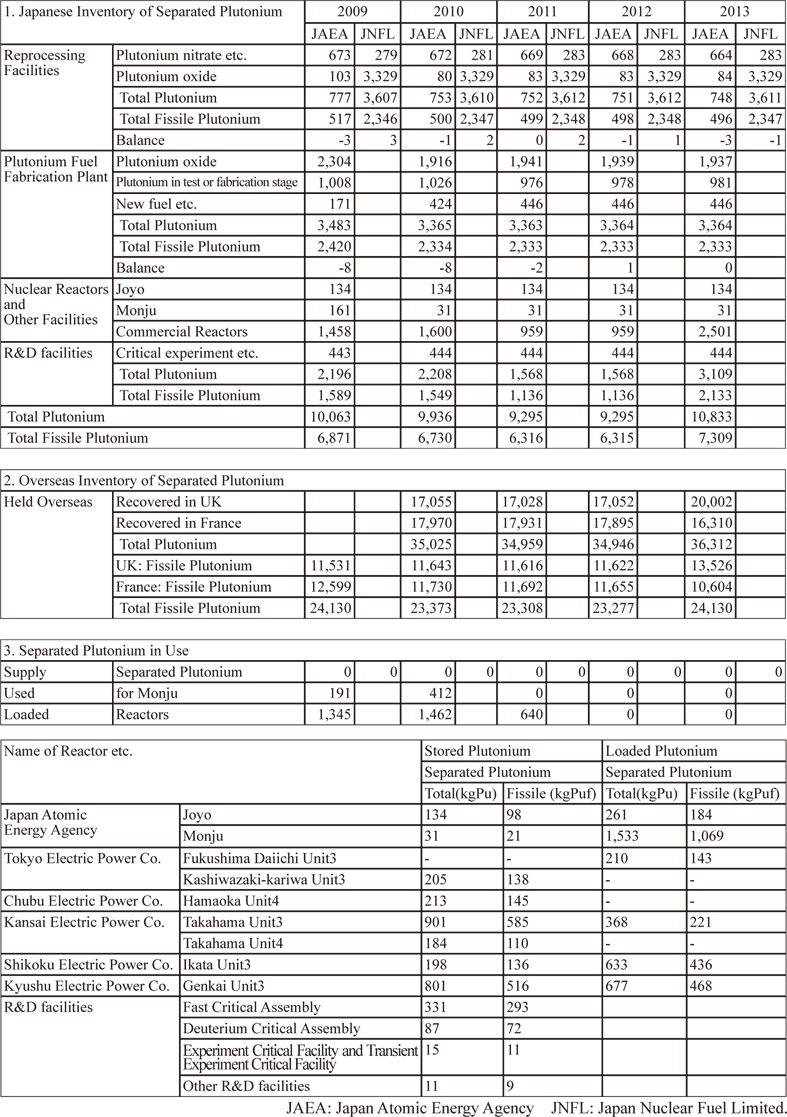Japan’s Separated Plutonium Inventory (as of the end of 2013) Nuke Info Tokyo No. 163
The inventory of Japan’s separated plutonium as of the end of 2013 was released at the 31st Regular Meeting of the Japan Atomic Energy Commission on September 16, 2014.
Changes in the plutonium inventory stored in Japan
While nuclear reactors in Japan have been stopped after the Fukushima nuclear accident, there were changes in the plutonium inventory stored in Japan. Firstly, 20 assemblies of mixed oxide (MOX) fuel for the Kansai Electric Power Takahama Nuclear Power Plant Unit 3 arrived from France (June 27, 2013), which increased the plutonium inventory in Japan by 901 kg. At Kyushu Electric Power’s Genkai Nuclear Power Plant, unspent MOX fuel assemblies were unloaded from Unit 3, which increased the plutonium inventory in Japan by 640 kg. These increases have been reflected in the plutonium inventory stored by the respective power companies, thus increasing the total plutonium inventory stored at nuclear reactors and other facilities in Japan. (The amount on the Total Plutonium line is different by approximately 3 kg. The difference is attributed to nuclear loss*1.)
Changes in the plutonium inventory stored in the UK and France
Japan’s plutonium inventory in the UK increased 2,950 kg over last year while that in France decreased 1,585 kg. Of the increase in the inventory in the UK and the decrease in the inventory in France, 650 kg is attributed to exchange between the two countries: 650 kg owned by Japan (TEPCO) and stored in France was exchanged with 650 kg owned by Germany and stored in the UK.
The approximately 2.3-ton increase after the 650 kg in the UK-stored inventory is attributed to “allocation*2,” according to the JAEC meeting minutes, but the details are unknown.
*1 Nuclear loss: Loss (decrease) resulting from natural decay of fuel substances
*2 When a country undertakes reprocessing for multiple countries, the country may allocate the plutonium generated by the operation of the reprocessing plant to the customer countries, according to the respective contract amounts.
 |
